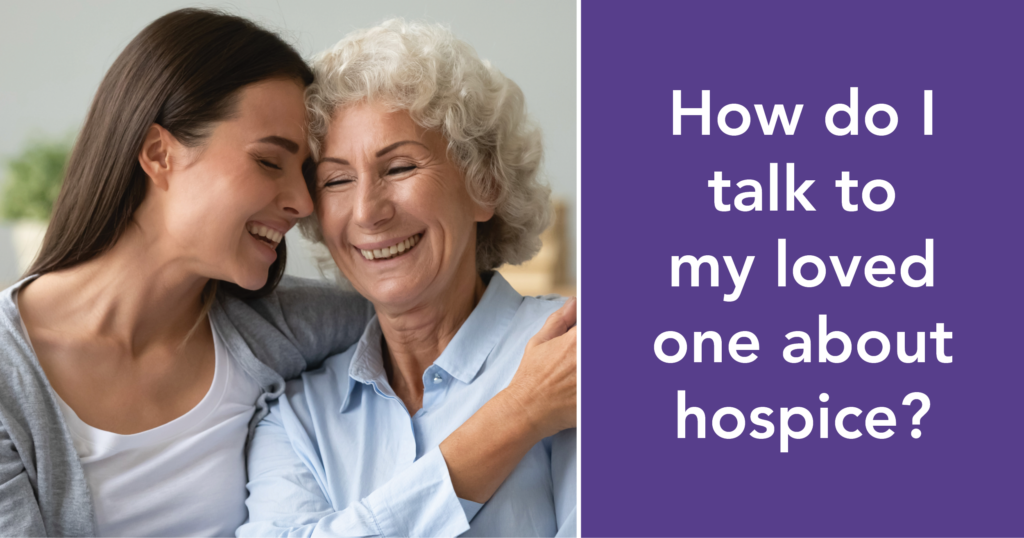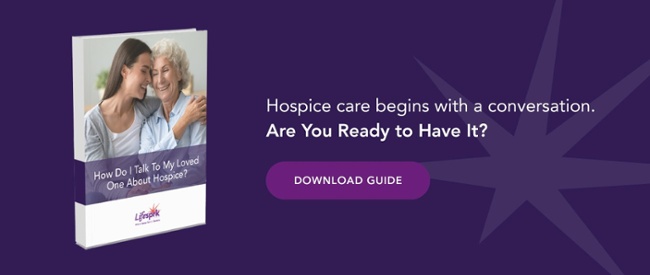
My dad was really late. For about 20 minutes, I’d been standing at the checkout lanes where we’d agreed to meet. He wasn’t usually a slow shopper. In fact, he liked going to Walmart because it was the one place where it didn’t matter that his legs were 90 years old. He’d climb into one of their motorized scooters and sail down the aisles. After another 10 minutes of waiting, I decided to go on the hunt. I couldn’t spot him anywhere. Neither could the employee whose help I’d enlisted. I was officially worried.
I called my dad’s cell phone for the third time, and he finally answered. When I asked him where he was, he said he didn’t know. I could tell he was confused, which wasn’t normal for him. I explained where to look for the aisle number, but he couldn’t find it. I asked him to describe what he saw around him, and he said, “Vegetables.” I kept him on the phone as I darted to the produce department. No sign of him there either. His voice was breaking my heart. I could hear how scared he was. Just at that moment, a kind shopper asked my dad if she could talk to me. She took his phone and told me they were tucked in a little corner of the store back by the vegetables—in frozen foods.
What I Didn’t Know
This sudden onset of confusion was a sign—one of several signs I’d missed—that it was time to think about hospice for my dad.
Though my father had been living with many life-altering conditions (Parkinson’s, diabetes, minimal kidney function, a history of strokes), none of his many “ologists” nor his primary doctor had ever indicated the end could be near. As it turned out, his death was only a few months away.
Had my siblings and I been on the lookout for signs that it was time for hospice, we could have given my dad a much more peaceful, comfortable, and meaningful end-of-life experience.
Instead, as each new symptom—each new predictor—appeared, we waged battle against it as we always had. We trudged to specialists and hospitals in search of a cure.
Signs (we missed) That it Was Time to Consider Hospice
- Declining Mental Impairment – A sudden loss of mental function can signal a new medical issue or a major health downturn. If your loved one is a candidate for hospice care, and you notice an unexplainable change in their cognition, you might want to think about beginning hospice and talk with your health care provider.
My dad’s confusion in Walmart was a symptom of delirium that would come and go throughout the rest of his life. We began to ping-pong between specialty clinics looking for an answer we never found. If we’d begun hospice instead, his care team could have monitored his condition, keeping him safe and comfortable at home, avoiding all of those stressful trips to medical experts.
- Frequent Trips to the ER / Hospital – This can be a sign that the emotional and physical toll that medical care is taking on your loved one far outweighs the benefits.
Dad ended up in the hospital four times in his last three months. It was so hard on him. So hard on all of us. He’d eventually recover enough for the doctors to send him home without ever discovering what the problem had been. If he’d been on hospice, he could have stayed out of the hospital altogether, being cared for by people who were experts on easing symptoms like his.
- Loss of Appetite / Dramatic Weight Loss – When a person loses interest in eating, their body can be getting ready to shut down.
During the last few months of my dad’s life, as pounds were melting off him, he was constantly poking new holes in his belt. (He wouldn’t let us buy him a new one. One of his many charms was his philosophy that he should: “Use it up, wear it out, make it do, or do without.”) I asked many of his doctors about his weight loss. I wish just one of them had alerted me to what it might mean in the bigger picture.
- Increased Amount of Sleep – Do you notice that your loved one spends a lot more time sleeping? It can be a sign of a major change happening within their body—possibly a dramatic downturn in health. Why not get a hospice team in place with all the medical resources that might be needed?
My dad would tell us that he could barely stay awake some days. His doctors didn’t seem concerned, so his sleepiness fell to the bottom of the pile of symptoms our family was worrying about.
- Inability to Do Daily Tasks – If a person you love is no longer able to dress themselves or handle other aspects of their daily life, it can indicate a major change in their health. A hospice team can help stabilize their condition and find ways to relieve them of some of those tasks. This allows your loved one to save their energy for more meaningful activities.
I remember the day my dad called me to come take his dog away because he was no longer strong enough to bring her outside. He lived for that little pup. I knew right then that he was in a bad place—but I kept hoping he would improve enough to have her back in his life. I’ve had that sweet, funny dog ever since.
“Look back at the last six months in your loved one’s life,” says Jen Blazek, BSN, RN, Lifespark Hospice Administrator,. “Has their health been getting worse? Now look forward six months. If they continue to decline at the same rate, how will life be for them? Maybe you could use the extra support that a hospice team can offer.”
Other Signs It May Be Time for Hospice
Download our guide: How to Talk to Loved Ones About Hospice
Have you noticed more distressing physical symptoms like pain, nausea, constipation, and shortness of breath?
- This can be another sign that your loved one’s health is heading downward.
- You can imagine how much harder it is for them to feel joy in their day when they’re struggling with so much discomfort.
- Hospice teams focus on the quality of your loved one’s life. They’re specifically trained to relieve symptoms like these.
Does your loved one keep getting infections?
- When their health is failing, their immune system stops working as well as it used to.
- That’s why they may have more skin infections, urinary tract infections, and bouts of pneumonia.
Are you getting tired in your caregiver role?
- Don’t be afraid to admit it. In fact, listen to what your body and mind may be trying to tell you.
- Taking care of someone you love—sometimes around the clock—can be a major drain on your own wellbeing.
- It may be time to let hospice relieve some of your burden by:
- Offering you tips on caring for your loved one
- Giving you quick access to medical equipment (like a hospital bed) and medications—without any cost to you
- Relieving your stress so you can focus on spending meaningful time with your loved one
- Arranging for someone to give you breaks—for days at a time—if you need them
Has the doctor mentioned hospice?
- It may be hard for you to hear. You may want to resist the advice. But it’s one of the most certain signs that it’s time to begin hospice conversations.
- If the doctor brings up hospice, they believe your loved one may only live six months or less.
- So why not start now? A hospice team wants to make life for your loved one—and your whole family—as easy and meaningful as possible.
“In your heart of hearts, you have a sense for how they’re doing,” says Jen Blazek. “If your first thought when you see your mom is, ‘Oh, she doesn’t look so good,’ or if her face is pale, or she’s not as feisty as she used to be, or her eyes have lost their sparkle—those are signs.”
 Watching for Signs
Watching for Signs
Maybe a person you love has a life-limiting condition. And it’s possible that the idea of hospice care hasn’t crossed your mind. It certainly hadn’t occurred to me before that day at Walmart—nor would I consider it for a long time after. To me, hospice was only for people in their final few days. Bedbound. Waiting to die.
Now I know better. I understand that if I’d been watching for the signs that it was time for hospice, I could have helped my dad live the last several months of his life with less stress and more happy thoughts. I could have spent fewer days driving him to doctors and hospitals and more days bringing his little dog over to cuddle with him during his favorite TV shows.
Just Ask
Now that I know the signs, I’ve lost track of how many friends I’ve mentioned them to. They’ll be telling me about their parents suddenly having more trouble remembering things or sleeping the day away, and I make a point to bring it up. I try to help them understand that hospice doesn’t mean death is right around the corner. It’s about living a better life for as long as it lasts.
Even if they’re not sure if their mom or dad qualifies for hospice care, I let them know how incredibly comforting it is to talk to someone from hospice who comes right to their house to answer all of their questions. Hospice workers have had tons of experience in end-of-life situations. They’re experts in an area that most of us consider a big, scary mystery. And they’re standing by to guide us through it.
Lifespark Hospice would be honored to help you figure out if hospice care is right for your loved one. Reach out to our team 24/7 for support and guidance schedule a free consultation now or call 952-737-4350. We know having the hospice conversation isn’t always easy for you or your loved ones, but we assure you, it’s incredibly important. How do you get started? Download our eBook ‘How Do I Talk to My Loved One About Hospice.’



